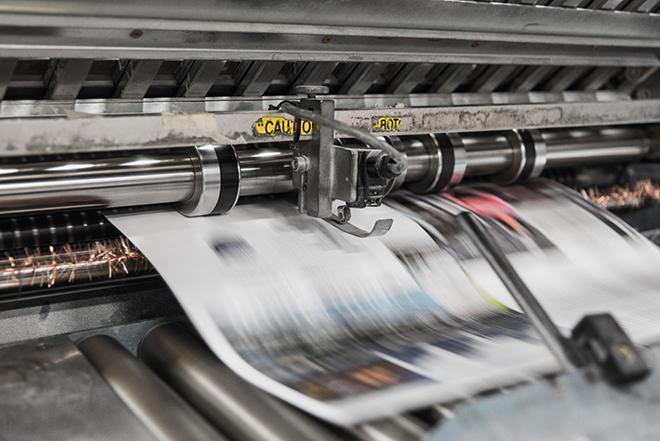Extracted from: zigzag.com
There are many different types of printing, but the most commonly used today are digital printing and offset printing. What are their advantages and disadvantages? Which printing system should you choose when you have to print something that exceeds the capacity of your home or business printer? In the following lines we explain it to you.

Digital Printing
100% digital printing is printing using a direct printing method. In other words, the toner or ink is applied directly to the substrate without the use of intermediate materials or devices. Therefore, the printing device is capable of interpreting this information and capturing it on the support. The most commonly used devices in a digital printing press are laser printers and plotters.
Advantages
These are the main advantages of digital printing:
- It is very fast and flexible.
- It is the most economical for short print runs.
- It allows the personalisation of each copy and the printing of variable data.
- It offers reasonably good print quality.
Offset printing
Offset printing is a printing method whose current basis is also digital. The difference is that the printing system is indirect, i.e. the image is transferred to the paper or substrate via two intermediary devices: a metal plate and a rubber cylinder.
The process is very complex to explain to anyone who is not a printing specialist. So let’s simplify: basically, the ink passes from the plate to the cylinder and from the cylinder to the substrate. The process is based on the phenomenon of non-miscibility and repulsion between ink and water.
We add that for an image printed in a single colour, it is sufficient to carry out the offset process once. For full-colour images, the most commonly used system is CMYK four-colour process (cyan, magenta, yellow and black). In the latter case, four printing rollers and four plates, one for each basic colour, are required. In other words, the substrate does not receive a single print, but four consecutive prints.
Advantages
Compared to a digital printer or plotter:
- Offset printing is more economical if the print runs are very long.
- It allows printing in very large formats and on a wide variety of media.
- It offers the highest printing quality: very high resolution and very uniform and precise colours.
Digital or offset printing: when to choose one or the other?
Some general guidelines for your choice are:
- If you need fewer than 2,000 copies, 100% digital printing is faster and cheaper.
- For larger print runs, it makes economic sense to opt for offset printing.
- If you are in a hurry to receive the job, the digital printer is better.
- If the job is a large-format digital print or on a special medium, there is no doubt: offset printing.
- For personalised prints or variable data, digital printing is better.
- And if you want unsurpassed quality and definition, offset printing.
Finally, we would add that if you hesitate between using the services of digital and offset printing companies, raise your case in a print shop that has both options. They will be able to tell you which system is best suited to your specific printing needs.
ZigZag Digital: https://zigzagdigital.com/art/27516/impresion-digital-y-offset-en-que-consisten-y-como-elegir-la-mejor-opcion#google_vignette